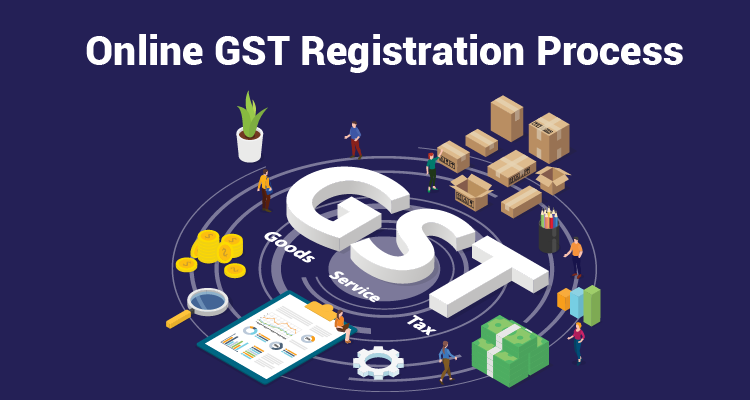Maximize Your Savings with the Best GST Registration Services in Singapore
Maximize Your Savings with the Best GST Registration Services in Singapore
Blog Article
Throughout: The Ultimate Roadmap to GST Enrollment for Companies Looking For Financial Stability
Browsing the intricacies of Goods and Solutions Tax (GST) enrollment is a critical action for services pursuing economic stability. From comprehending the essential principles of GST to complying with post-registration standards, the process can seem daunting initially look. Nevertheless, breaking down the roadmap into manageable actions can streamline the enrollment journey for businesses looking to improve their financial standing. Allow's discover the essential parts that make up this best roadmap and find how each phase contributes to laying a strong foundation for monetary success.
Understanding GST Basics
Exploring the basic concepts of Item and Services Tax Obligation (GST) is important for obtaining a thorough understanding of its implications on businesses and the economic situation. GST is a value-added tax imposed on many items and solutions for residential consumption. It has actually replaced numerous indirect tax obligations that existed in the pre-GST age, improving the tax framework and boosting convenience of doing business in India. Under the GST system, both services and products are exhausted at a details rate, which is established based upon their classification. If their yearly turnover exceeds the threshold limit established by the government, organizations are needed to register for GST. Input Tax Credit Rating (ITC) is a considerable function of GST, enabling services to declare credit for tax obligations paid on inputs, reducing the total tax worry. Recognizing the essentials of GST is crucial for services to abide by tax obligation policies, manage their funds effectively, and add to the country's economic growth by participating in a clear tax obligation system.
Eligibility Criteria for Enrollment
As of the current policies, the threshold limit for GST enrollment is an annual accumulation turnover of 40 lakhs for services running within a state, except for special classification states where the restriction is 20 lakhs. In addition, certain services are needed to register for GST regardless of their turnover, such as interstate vendors, casual taxed individuals, and companies accountable to pay tax obligation under the reverse fee system. It is vital for companies to completely analyze their turnover and transaction types to identify their GST enrollment commitments precisely.
Records Needed for Registration
Having actually met the eligibility standards for GST registration, businesses must now guarantee they have the requisite papers in place to proceed with the enrollment process effectively. The documents needed for GST enrollment typically consist of proof of business constitution, such as partnership action, enrollment certificate, or unification certification for various types of businesses. Furthermore, services need to offer documents establishing the major location of service, such as a rental arrangement or electrical energy bill.
Step-by-Step Registration Refine
Starting the GST registration procedure involves a collection of organized actions to make sure a certified and smooth registration for companies. The initial action is to visit the GST site and complete the registration form with accurate information of business entity. Following this, the applicant receives a Temporary Referral Number (TRN) which is used to return to the application process if it's not finished in one go.
Next, all required papers based on the list given by the GST portal need to be uploaded. These records generally consist of proof of company enrollment, address and identification evidence of promoters, monetary declarations, and service entity's frying pan card.

Post-Registration Compliance Standards

Final Thought
In final thought, services seeking financial security needs to recognize the essentials of GST, satisfy qualification requirements, gather essential records, adhere to the detailed registration procedure, and abide by post-registration guidelines - Best GST registration services in Singapore. By sticking to these steps, organizations can make certain conformity with tax obligation policies and preserve financial security over time
Furthermore, specific services are required to sign up for GST regardless of their turn over, such as interstate suppliers, casual taxable individuals, and businesses responsible to pay tax under the reverse fee system.Having met the qualification standards for GST registration, businesses need to now ensure they have the requisite records in location to proceed with the enrollment procedure effectively. The documents required for GST enrollment usually consist of evidence of browse around here service constitution, such as collaboration deed, registration certificate, or unification certificate for various kinds of organizations. Furthermore, services require to give papers establishing the major area of organization, visit this website such as a rental contract or electricity expense.Beginning the GST enrollment procedure involves a series of organized steps to make certain a seamless and compliant registration for organizations.
Report this page